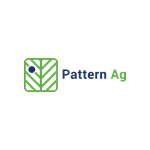- Pattern Ag built the world’s largest soil-focused metagenomics database, at greater than 43 Terabases
- Pattern Ag plans to expand its future sequencing and analysis efforts to include samples from around the globe to build the first global map of the soil microbiome
- Pattern Ag is actively mining unknown soil microorganisms to uncover microbial dark matter and unleash the power of biological solutions in agriculture
EMERYVILLE, Calif., April 27, 2023 (GLOBE NEWSWIRE) -- Pattern Ag operates the world’s largest metagenomics database, leveraging soil data from more than 43 Terabases. This database is larger and more significant than the publicly available Tara Oceans database – a multinational academic partnership that took five years to build – and Pattern Ag continues adding to its own database.
“The scale of the Pattern Ag database is critical because it unlocks new computational solutions in agriculture,” Rob Hranac, Pattern Ag CEO, said. “This unique scale of data in agricultural soils allows us to predict agronomic outcomes more precisely than previously possible, unleashing the power of predictive ag for our customers.”
Pattern Ag was founded in 2018 and soon after started building its database. As work progressed, Pattern Ag collected samples and began running DNA tests on soil. Today, Pattern Ag collects and analyzes soil samples from across the Midwest, continuously adding depth to its massive database. The company plans to broaden the scope of this effort to include analysis of soil samples from around the globe, with a long-term vision of building the first global map of the soil microbiome.
“A key limitation of our ability to understand the soil microbiome is the available genomic data at scale,” Hranac said. “Typically, researchers have been limited by low throughput laboratory models that have allowed them to study microbiomes in isolation. Pattern has created a unique genomic data factory for soils by building biological analytics for product placement and investing in advanced robotics platforms to process soil data at scale.”
An instantiation of the power of the Pattern Ag metagenomics database is the company’s recently released annual Predictive Ag Report, which predicts the risks of some of the world’s most destructive pests 12 months in advance, with more than 90% accuracy. This information allows farmers to reduce the costs associated with controlling pests and pathogens, including corn rootworm and soybean cyst nematodes, leading to more sustainable farming practices.
“Scale is not the only factor that makes our genomic database unique,” says Danielle Watts, Ph.D., vice president of data science for pattern. “By focusing on production corn and soybean fields, we can uniquely understand the context behind the genomes we are sequencing. Having metadata on the physical, chemical, and agronomic components of the fields we sample from gives us a unique ability to connect microbial data to farmer outcomes.” The fusion of these datasets allows Pattern Ag to reduce the time it takes to bring new insights to the market, and mine for new organisms and pathways that had not previously been described by science.
According to estimates from the Food and Agriculture Organization, food production will need to be increased 60% by 2050 to feed the world’s growing population. Companies that use insights garnered from the Pattern Ag metagenomics database will help commercialize innovative solutions to sustainably increase food production.
Pattern Ag is actively soliciting industry and academic partnerships to be a part of leveraging its metagenomics database to solve practical agronomic challenges for farmers.
Pattern Ag
Founded in 2018, Pattern envisions a future where conventional agricultural inputs are enhanced and eventually replaced by precision microbiome engineering, improving farm productivity and sustainability. Pattern’s corporate office is headquartered in Emeryville, California, with field teams located throughout the Midwest. Pattern uses analytics to help farmers optimize their spending on crop protection, seed selection, and fertility inputs while improving the long-term productivity of their land. To learn more, visit www.Pattern.ag.
For more information and to receive a copy of the report, please contact:
Natalie McCracken
Head of Marketing, Pattern Ag
708-220-4342
natalie@pattern.ag
www.pattern.ag






